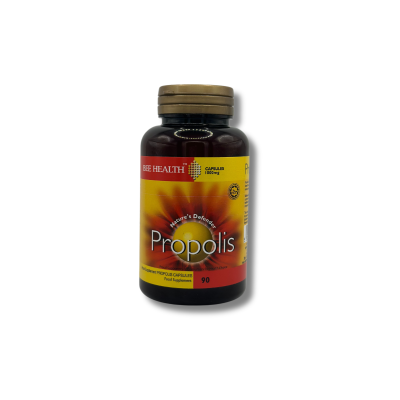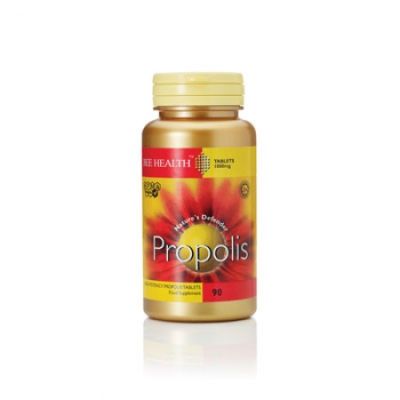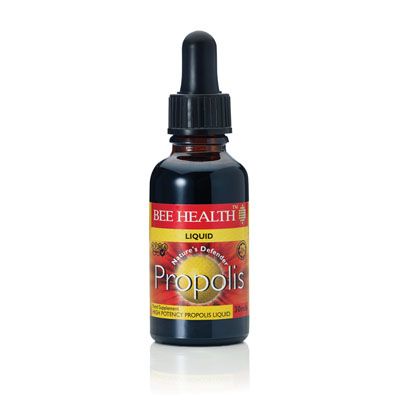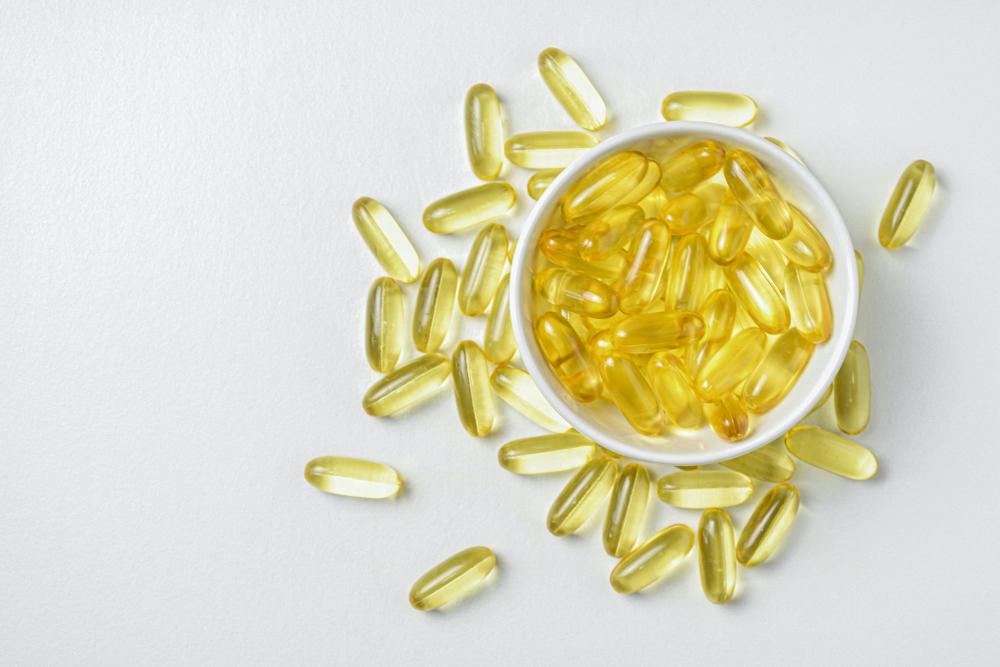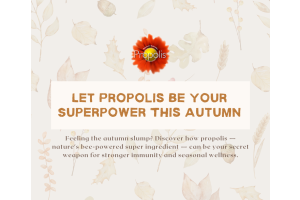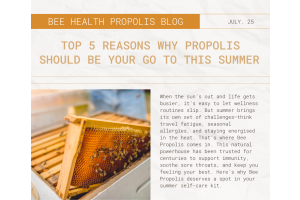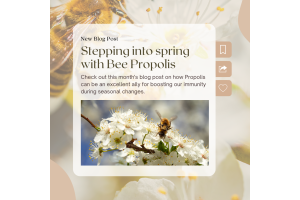Bee Propolis: A Superfood for Your Health and Well-being
Propolis has more than earned its spot as a superfood - because it does exactly what a superfood should - it offers exceptional health benefits. This is thanks to the fact it contains over 500 bioactive molecules that have antibacterial, anti-fungal, anti-viral, anti-inflammatory, anticancer and antioxidant properties. It can be used internally and externally, treating a wide array of illnesses including bacteria that has built up a resistance to synthetic drugs.
If you are looking for an exceptional antioxidant and anti-inflammatory superfood, propolis is it. Propolis contains a large amount of flavonoids and polyphenols (antioxidants). Antioxidants play an important role in fighting off free radicals which can lead to oxidative stress. Oxidative stress causes damage and inflammation to cells in the body that can cause chronic illnesses. Studies of propolis have shown it to be beneficial in helping to lower blood pressure, improving cardiovascular health, helping with neurological disorders like Alzheimers and improving immunity.
Propolis contains anti-fungal properties and studies have shown it to be beneficial in inhibiting and treating the growth of candida yeast. Candida is the most common yeast found in the mouth, intestines, vagina and on the skin. For most healthy people candida is not a problem, but for those with immune systems that are suppressed candida can overgrow, spreading to other parts of the body and can even cause infections in the bloodstream and internal organs.
When it comes to cancer prevention, propolis has been shown to have anti-cancer benefits that can hinder the development of some cancers. It may play a role in how effective certain cancer treatments like chemotherapy are. Propolis mouth rinse is effective in treating oral mucositis caused by chemotherapy.
Propolis is important when it comes to looking after oral health. It contains a specific flavonoid that can fight off tooth decaying bacteria, preventing cavities from forming. Propolis can improve the healing of mouth ulcers, reduce oral bacteria and plaque buildup. It is also an excellent natural treatment for cold sores, and just as effective if not more than the regular treatment available. When taken orally propolis can help treat respiratory illnesses such as sore throats and coughs as it has excellent antibacterial and antiviral properties.
Propolis is not the type of superfood that you would want to add to your morning oats or smoothie, it has quite a distinct strong flavour and best taken in supplement form. It can be taken orally in the form of sprays, lozenges, tinctures, and tablet/capsules, and externally in ointments and creams. Remember to always speak to your doctor before starting a new supplement, especially if you are taking existing medication or have an illness.
Do not taking propolis or any other bee related products if you are allergic to bees.
References
500 bioactive markers - https://www.ncbi.nlm.nih.gov/pmc/articles/PMC8156449/
Resistance to synthetic drugs - https://www.ncbi.nlm.nih.gov/pmc/articles/PMC8578493/\
Antioxidant - https://www.ncbi.nlm.nih.gov/pmc/articles/PMC9116673/
Anti inflammatory - https://www.ncbi.nlm.nih.gov/pmc/articles/PMC9116673/
Alzheimers - https://www.ncbi.nlm.nih.gov/pmc/articles/PMC6893770/
Improving immunity - https://www.ncbi.nlm.nih.gov/pmc/articles/PMC6893770/
Beneficial inhibiting the growth - https://www.ncbi.nlm.nih.gov/pmc/articles/PMC8724646/
Candida Yeast - https://my.clevelandclinic.org/health/diseases/22961-candida-albicans
Overgrown - https://my.clevelandclinic.org/health/diseases/23198-candidiasis
Anti cancer - https://www.ncbi.nlm.nih.gov/pmc/articles/PMC8399583/
Effects on certain treatments - https://www.ncbi.nlm.nih.gov/pmc/articles/PMC8399583/
Oral mucositis - https://www.oatext.com/Propolis-as-an-adjunct-to-prevention-and-treatment-of-radiotherapy--and-chemotherapy-induced-oral-mucositis.php
Preventing cavities - https://pubmed.ncbi.nlm.nih.gov/25728105/
Just as effective - https://pubmed.ncbi.nlm.nih.gov/34965458/
Respiratory illness - https://www.sciencedirect.com/science/article/pii/S0753332221013822


